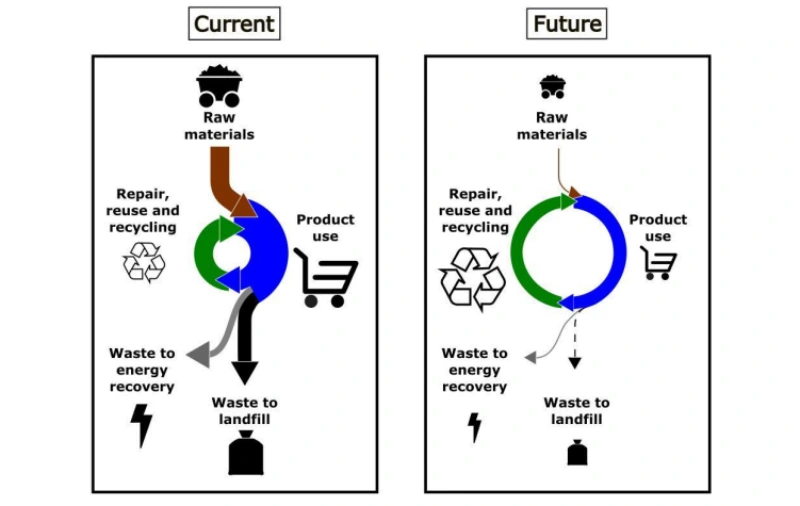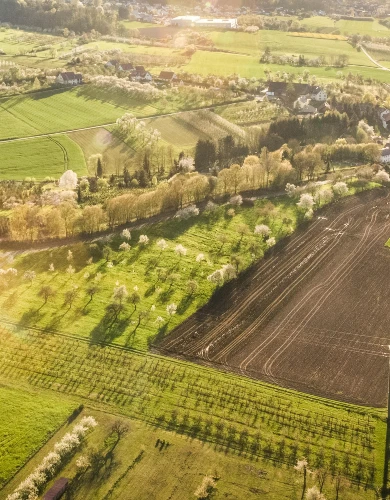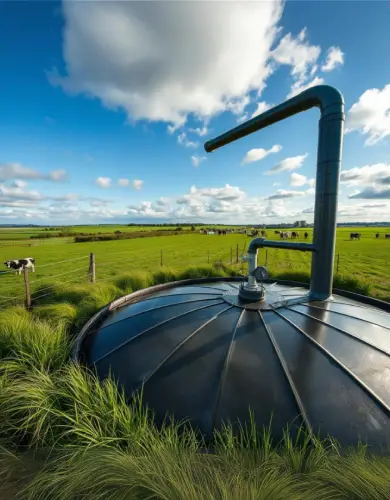Devolved Waste Policy and Regulations
⚠️ New commercial waste regulations came into effect for Wales on April 6, 2024, and will come into effect for England on March 31, 2025.
- England: English waste regulation and enforcement is the most relaxed of all home nations, even with upcoming changes in 2025.
- Wales: Wales has the highest recycling rates in the UK thanks to its stringent compliance enforcement and forward-thinking policies.
- Scotland: Scotland was the first nation to have its own regulations and take decisive action on banning single-use plastics.
- Northern Ireland: Northern Ireland is due to announce new waste policies in 2024.
The UK is a union of nations comprising England, Scotland, Wales, and Northern Ireland. Each has its own ‘devolved’ parliament with authority over its waste policy and regulations.
These are collectively known as ‘Devolved Waste Regulations’ and operate alongside UK-wide legislation (i.e. EPA 1990 and Environment Act 2021) to ensure a degree of standardisation across the UK while giving each nation the possibility of tailoring their own waste regulation.
💡 See our guide on UK-wide Commercial Waste Regulations and Compliance to understand how these relate to the devolved regulations herein. In summary, they provide the base legislation that home nations can build on, namely:
England
⚠️ From 31 March 2025, businesses in England will be required to have separate streams for dry recyclables and commercial food waste. Other changes as described in this government response (Nov 2023) include enhanced Duty of Care enforcement, a standardised recycling system, Deposit Return Schemes, and more.
💡 Westminster has been criticised for its slow response to the Environment Act 2021.
Current Regulations: Waste (England and Wales) Regulations 2011
Regulatory Agency: Environmental Agency (EA)
Other Actors: WRAP
Main Takeaways:
✅ Current state:
- Non-compliance with duty of care remains rife, particularly in SMEs who dispose of all their waste in the general waste stream.
- Local authorities don’t collect the same range of recyclables across England.
- The Environment Agency remains the most relaxed when it comes to regulations enforcement.
✅ Upcoming changes:
- By 31 March 2025 (31 March 2027 for micro-firms with <10 employees), all non-household premises will need to arrange for:
- Separate commercial waste collection of Dry Mixed Recyclables from all other waste streams (Dry Mixed Recycling allowed!).
- Separate food waste collection and disposal, unless the business does not generate any.
- Separate recycling of plastic films from all other waste streams by 31 March 2027.
✅ Future changes:
- Dry recyclable waste streams will be standardised for all properties in England (domestic, commercial, public, etc).
- Deposit Return Scheme (DRS) for drinks containers.
- Standardised and mandatory recyclability labelling on packaging.
- Enhanced enforcement capabilities to the Environment Agency.
Source: UK Gov – Consultation Outcome (Nov 2023); UK Gov – DEFRA Press Release (Oct 2023); Waste (England and Wales) Regulations 2011; Right Place, Right Waste – A simple guide to Duty of Care
Wales
⚠️ Since 6 April 2024, Welsh businesses have been required to undertake multi-stream recycling (plastics, cardboard, etc.) and arrange for separate food waste collections. For more details, please visit our commercial waste Wales page
Current Regulations: Environment (Wales) Act 2016, The Waste Separation Requirements (Wales) Regulations 2023
Regulatory Agency: Natural Resources Wales (NRW)
Other Actors: WRAP,
Main Takeaways:
✅ Current state:
- Wales has a high compliance rate with waste separation and recycling regulations.
- Wales has a high recycling rate of ~65%.
- There is consistency in recyclable collections across local authorities in Wales.
✅ Recent changes:
- From 6 April 2024, the following will be enforced by NRW and local authorities on businesses, the public and third sector:
- Separate collection of food waste (if producing over 5kg per week) and a ban on disposing it by flushing it down the sewers.
- Separate collection of individual dry recyclables (paper and card, glass, metal, plastic, small waste electrical and electronic equipment (sWEEE), and unsold textiles)
- A ban on wood waste and any of the above in general waste streams going to incineration or landfill.
✅ Future changes:
- Wales has a clear path towards zero waste and effectively recycle, compost and re-use 100% of waste by 2050.
- More upcoming regulations will be put in place after the April 2024 changes are rolled out.

Sources: Welsh Gov – Beyond Recycling (2021); Welsh Gov – Towards Zero Waste; Environment (Wales) Act 2016, The Waste Separation Requirements (Wales) Regulations 2023, UK Gov – Statistics on Waste 2021
Scotland
Scotland has had relatively forward-thinking regulations since 1 January 2014, when the Waste (Scotland) Regulations 2012 have been in force. It mandates all non-households to recycle specific materials and most food businesses to recycle their food waste. For further information, please visit our commercial waste Scotland page.
Current Regulations: The Waste (Scotland) Regulations 2012, Single-use Plastic Products (Scotland) Regulations 2021
Regulatory Agency: Scottish Environmental Protection Agency (SEPA)
Other Actors: Zero Waste Scotland
Main Takeaways:
✅ Current state (Since 2014):
- Businesses and organisations in Scotland, regardless of size, must recycle materials like plastic, metal, glass, paper, and cardboard.
- Since 2022, single-use plastics such as polystyrenes, cutlery, plates, stirrers, cups and lids, straws are banned.
- Urban food businesses producing over 5 kg of food waste per week must separately collect food waste, unless exempt in rural areas.
- Disposing of food waste into public drains or sewers is illegal unless collection is unavailable.
✅ Upcoming and future changes:
- Since the existing regulations of Scotland cover much of the requirements of the Environment Act 2021, there aren’t as many changes as in England and Wales.
- Continued policy updates and infrastructure improvements are on-going.
Sources: The Waste (Scotland) Regulations 2012, Single-use Plastic Products (Scotland) Regulations 2021, Zero Waste Scotland
Northern Ireland
💡 A renewed NI Waste Management Strategy, which will provide further guidelines and regulations, is expected to be published in 2024.
Current Regulations: The Waste and Contaminated Land (Northern Ireland) Order 1997
Regulatory Agency: Northern Ireland Environment Agency (NIEA)
Main Takeaways:
✅ Current state:
- NI has the second-highest recycling rate of any home country after Wales.
- NI businesses that produce over 5kg of food waste are required to present it separately for collection.
✅ Upcoming and future changes:
- To be confirmed in yet to be yet-to-be-published NI Waste Management Strategy.
Sources: UK Gov – Statistics on Waste 2021, agendaNI
Devolved Policy and Regulations – FAQs
Our business waste experts answer the commonly asked questions on devolved waste regulations in the UK.
Who is my waste regulator?
This depends on where your business premises are located. Since the UK’s devolution of power, each home country has its own regulating agency:
- England: Environmental Agency (EA)
- Wales: Natural Resources Wales (NRW)
- Scotland: Scottish Environmental Protection Agency (SEPA)
- Northern Ireland: Northern Ireland Environment Agency (NIEA)
💡 Inspections may be carried out by these agencies or your local authority. If non-compliance occurs outside of your business’s agency’s jurisdiction, your business may be liable for fines from a foreign agency (e.g. NRW fining your English business for waste mishandling in Wales)!

